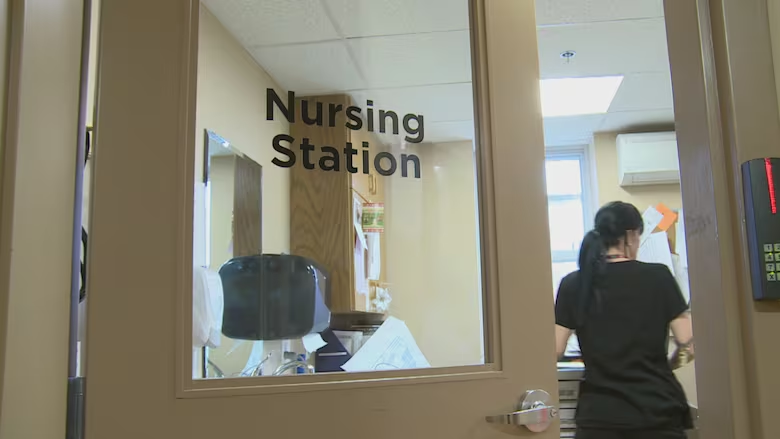Northern Manitoba First Nations declare state of emergency over nursing shortage
'People are going to die if we don't do something,' says Manitoba Keewatinowi Okimakanak grand chief

First Nations leaders in northern Manitoba have declared a state of emergency over what they say is a critical staffing shortage at nursing stations across the province.
The Keewatinohk Inniniw Okimowin Council, made up of chiefs and councillors from the 23 First Nations represented by Manitoba Keewatinowi Okimakanak, made the declaration during a meeting on Wednesday.
"It has always been critical, there's always been a crisis, but it's only been amplified because of the pandemic," said MKO Grand Chief Garrison Settee.
The critical nursing shortage affects all of Manitoba's federal nursing stations, "placing First Nations people in actual peril because of the much longer wait times to be seen in the nursing stations where a minimum standard of care is already stretched to breaking," MKO said in a news release.
There are 22 federally run nursing stations in remote First Nations communities in Manitoba.
Due to the number of nurses available, an "open to emergencies only" policy was put in place for at least the week of May 16 to 23, meaning that the stations can only provide care in emergencies, they said.
The situation "is putting people's lives in peril," Settee said.
"We need to sit down with the governments, we need to sit down with the decision makers and say there is a problem here. People are going to die if we don't do something and something must be done immediately."
Pimicikamak Cree Nation Chief David Monias is also calling for meetings with federal and provincial ministers, including Manitoba officials involved with the health-care system transformation that started in 2017.
"Both parties need to come to the table," he said.

He said his community was among those told that for at least one week this month, only emergency services were being offered at the local nursing station due to a staffing shortage. Residents are becoming increasingly upset, he said.
"They feel like they're being discriminated [against], they feel like they're not important and they feel like they should be seen by a doctor or nurse," he said.
"It's a constant chronic problem with staffing and nurses."
'An emergency in the north is different'
People in the north already have to travel long distances to get health care. Now, there will be even fewer services available those communities, Settee said.
"An emergency in the north is different, because of the remoteness," he said.
"People can die waiting for critical care and those are the situations that have always been faced by our people, and it is something that is amplified when these actions and decisions are made."
A spokesperson for Indigenous Services Canada said access to health care is still available in Manitoba First Nations communities.
"While there are nursing shortages in ISC's nursing stations in isolated and remote First Nations communities, ISC continues to offer regular health care services to communities and is committed to ensuring access to safe care as a priority for all First Nation people," the spokesperson said in an email.
ISC is redeploying staff to ensure minimum staffing levels are maintained.
For the week of May 30, only one community is expected to operate below minimum staffing levels, they said.
A spokesperson for the Manitoba government said Health Minister Audrey Gordon recently met with officials from the Northern Health Region as well as service providers to find ways to keep nursing stations open.
"Minister Gordon has reached out to arrange a meeting with MKO and KIM [Keewatinohk Inniniw Minoayawin] to continue the discussion of improving health and wellness services in northern Manitoba and for advice on other ways to fight racism in our health-care system," the spokesperson said.
First Nations need more control over health care: MKO
Settee said the solution is for First Nations to take over more health care services themselves, so that procedures and diagnostics can be provided in communities.
Monias echoed that statement, saying he feels First Nations may be better able to recruit and retain nurses directly, without involvement from other levels of government.
One factor Monias suggested could be deterring some nurses has to do with Health Canada compensation policies.
He said if a nurse relocates to a remote community, Health Canada will cover their accommodation costs. But if a nurse from one of these communities elects to stay and work there, the federal government will not cover those costs, according to Monias.
"The nurses are very critical for us.... You have to be able to see a nurse in order to see a doctor, in order to see a specialist, in order to go to hospital, so forth, so that's the point of entry," he said.
"If that's closed off and it's not there, then you're left with no services."
With files from Cameron MacLean, Alana Cole and Marjorie Dowhos
